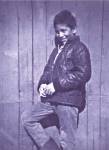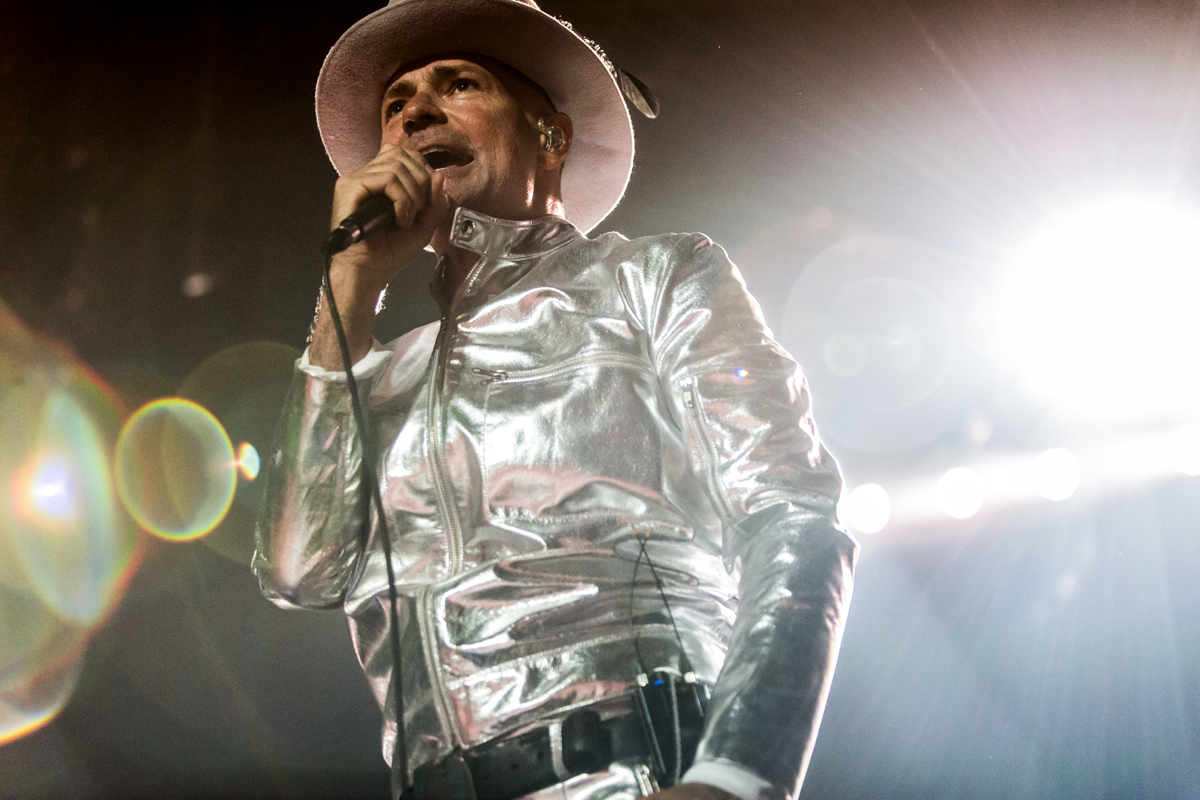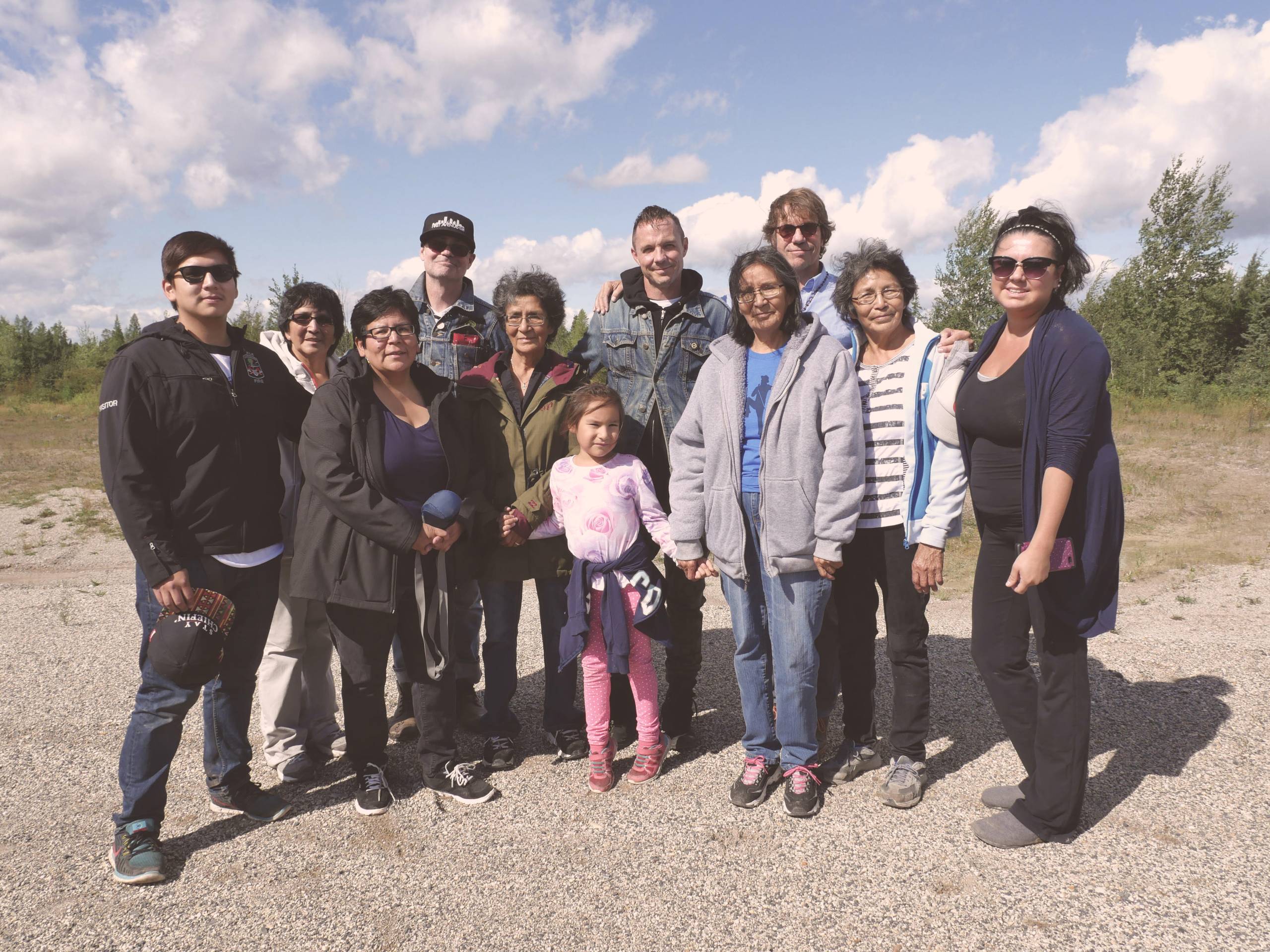The Gord Downie & Chanie Wenjack Fund was inspired by the story of Chanie Wenjack, a twelve-year-old Anishinaabe boy, and Gord Downie's call to build a better Canada. The Legacy Spaces program supports their aim of building awareness and understanding and creating a path toward reconciliation.
Chanie Wenjack was an Anishinaabe boy born in Ogoki Post on the Marten Falls Reserve in Northern Ontario on January 19, 1954. At the age of nine, he was sent to Cecilia Jeffrey Residential School in Kenora, Ontario. Three years later, at twelve years old, he ran away, trying to reunite with his family 600km away. Chanie’s body was found beside the railway tracks a week after he fled, having succumbed to starvation and exposure.

Chanie’s story is like that of many other Indigenous children in this country. But while so many never came to light, Chanie’s story made its way to Gord Downie – a beloved and powerful voice – who was moved to action. Downie, the lead singer, songwriter, and creative force behind The Tragically Hip, was inspired to write ten poems after his brother, Mike, shared the story with him. Those ten poems became the The Secret Path album, which became the graphic novel and ultimately an animated film. Downie used his voice and platform to call upon everyone to “Do Something” about Indigenous-settler relations in this country.
Gord Downie and Chanie Wenjack’s families came together to form the Gord Downie & Chanie Wenjack Fund (DWF), embodying both Downie’s commitment (and that of his family) to improving the lives of Indigenous people in Canada, and the Wenjack family’s goal to continue the conversation that began with Chanie’s residential school story.
 Gord Downie of The Tragically Hip performs during their last concert in Kingston on August 20th, 2016. (David Bastedo/The Tragically Hip)
Gord Downie of The Tragically Hip performs during their last concert in Kingston on August 20th, 2016. (David Bastedo/The Tragically Hip)
“Chanie’s story has been able to invite hearts and minds to open and learn about the true history and legacy of residential schools, and to invite people to learn more about the true history of Indigenous people in Canada,” says Sarah Midanik, President & CEO of DWF. She adds that one of the primary goals of the Gord Downie & Chanie Wenjack Fund is to aid the collective reconciliation journey through awareness, education, and action.
The Legacy Spaces program directly supports this goal.
Legacy Spaces are an opportunity to build awareness and connection
“Legacy Spaces are safe, welcoming places where conversations and education about the true history of Indigenous people in Canada are shared, and our collective journey towards reconciliation can be acknowledged,” explains Midanik, adding that they are physical representations that demonstrate an organization’s commitment to reconciliation. They could be centered around education, creating opportunities for cross-cultural understanding, and/or an opportunity to engage with Indigenous stakeholders, employees, and partners. “And, many of our Legacy Spaces partners take that next step towards procurement and the Indigenous economy, to hiring and retention practices and to developing their own Reconciliation Action Plans,” adds Midanik.
A five-year commitment, the Legacy Spaces program ensures organizations experience a progressive build year-over-year in terms of the depth of the content and engagement and the commitments they agree to undertake.
RBC is a long-time DWF partner and new Legacy Spaces partner, recently designating the 40th floor of its head office at 200 Bay Street in Toronto as a Legacy Space. The 40th floor is a high-profile, central space where employees, clients, and partners gather. Designating it as a Legacy Space reflects RBC’s commitment to building relationships with Indigenous people and communities based on mutual respect and shared values.
“When Canada’s largest bank dedicates a space that acknowledges Indigenous history in this country, it is a real demonstration of our commitment to Indigenous communities and reconciliation,” says Mark Beckles, Vice President, Social Impact and Innovation at RBC. He adds that in addition to the historical path the space takes visitors down, he feels it must also highlight our obligations for the future. “It is my hope that colleagues and communities can recognize what we can do, both individually and corporately, to advance reconciliation. Yes, it is important to learn. However, it’s what we do with that learning that matters.”
He adds that in creating this Legacy Space, it calls attention to the importance of reconciliation and encourages the curation of additional Legacy Spaces – not just within the RBC physical network but other leading companies in Canada as well.
“One of the beautiful effects of creating an Indigenous placemaking space is that it’s impossible not to engage in the resources provided in the room,” says Midanik. “The physical presence of seeing Indigenous peoples and cultures represented within the space really sparks the conversation and is representative of the commitment to reconciliation. When you have senior executives meeting in that space, they’re immersed in that experience and it’s a reminder that this work is meant to be integrated into the decisions each and every one of us can make every day.”

Inspiring and supporting an ongoing journey
The Gord Downie & Chanie Wenjack Fund works with all different kinds of partners at different points in their journeys who create different types of Legacy Spaces. “Some come to us saying they don’t know what to do and are afraid of doing something wrong, while others come to us and use the Legacy Space as an engagement opportunity to get their teams, employees and stakeholders excited about the work that’s about to be undertaken,” explains Midanik. Wherever their partners are in their journey, DWF provides educational tools and resources to start conversations and build awareness and connections.
A Legacy Space can be in an office, a park, a library… anywhere that allows people to come together in the spirit of reconciliation. “The Legacy Spaces program is an amazing opportunity to be able to reach so many people who might not have learned about the true history and legacy of residential schools through the school system and may not know how to access those learning resources today,” says Midanik who encourages organizations across the country to consider ways to provide an opportunity for learning and conversation – wherever they are in their journey today.
Learn more about the Gord Downie & Chanie Wenjack Fund and RBCs Legacy Space
This article is intended as general information only and is not to be relied upon as constituting legal, financial or other professional advice. A professional advisor should be consulted regarding your specific situation. Information presented is believed to be factual and up-to-date but we do not guarantee its accuracy and it should not be regarded as a complete analysis of the subjects discussed. All expressions of opinion reflect the judgment of the authors as of the date of publication and are subject to change. No endorsement of any third parties or their advice, opinions, information, products or services is expressly given or implied by Royal Bank of Canada or any of its affiliates.

